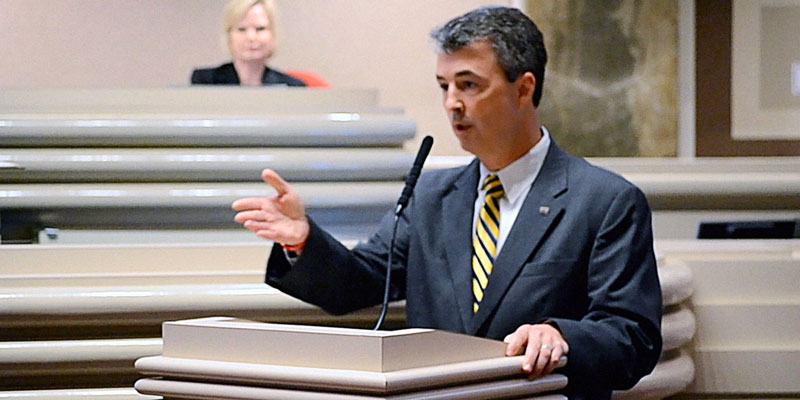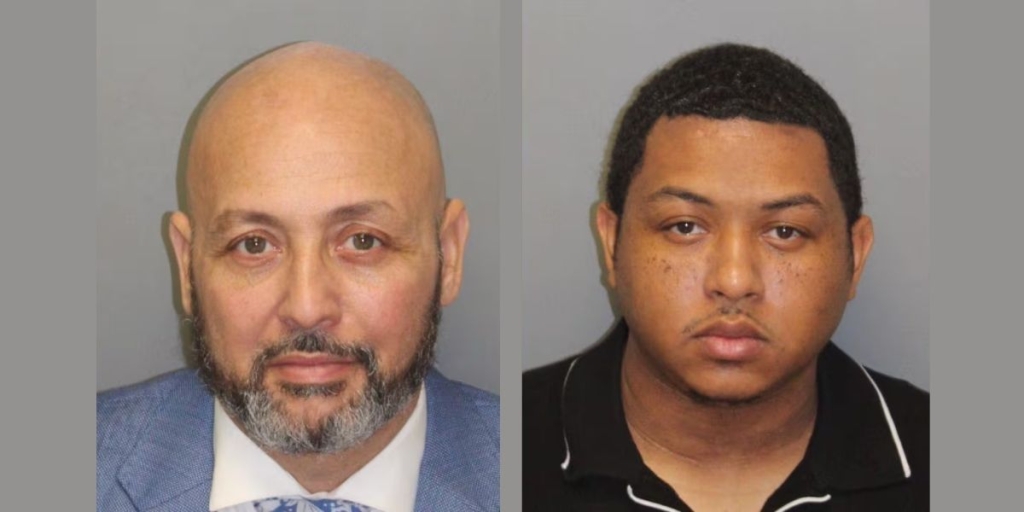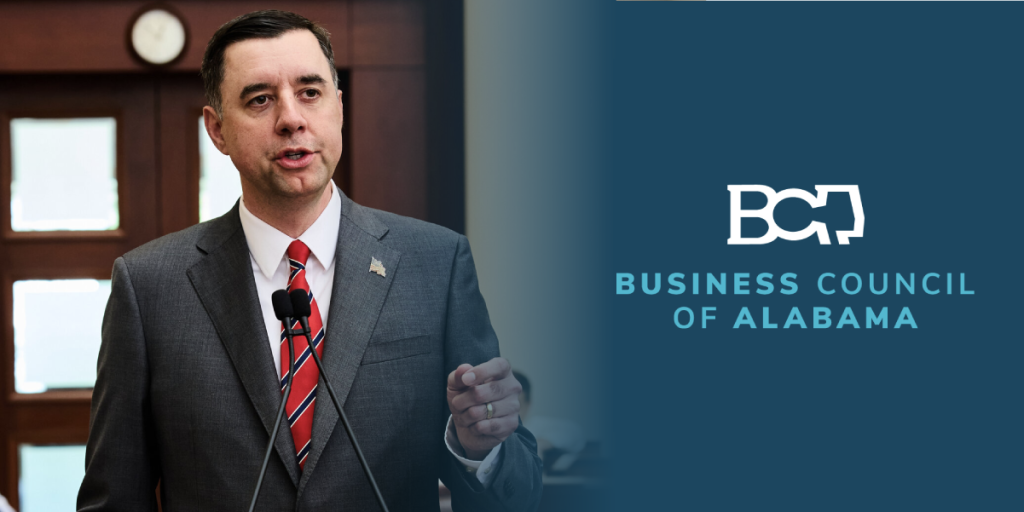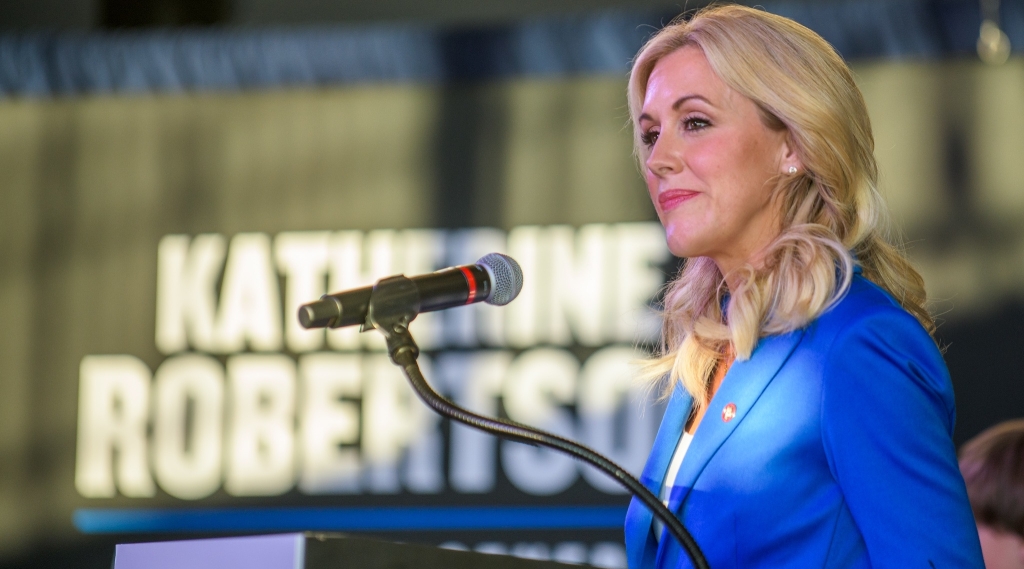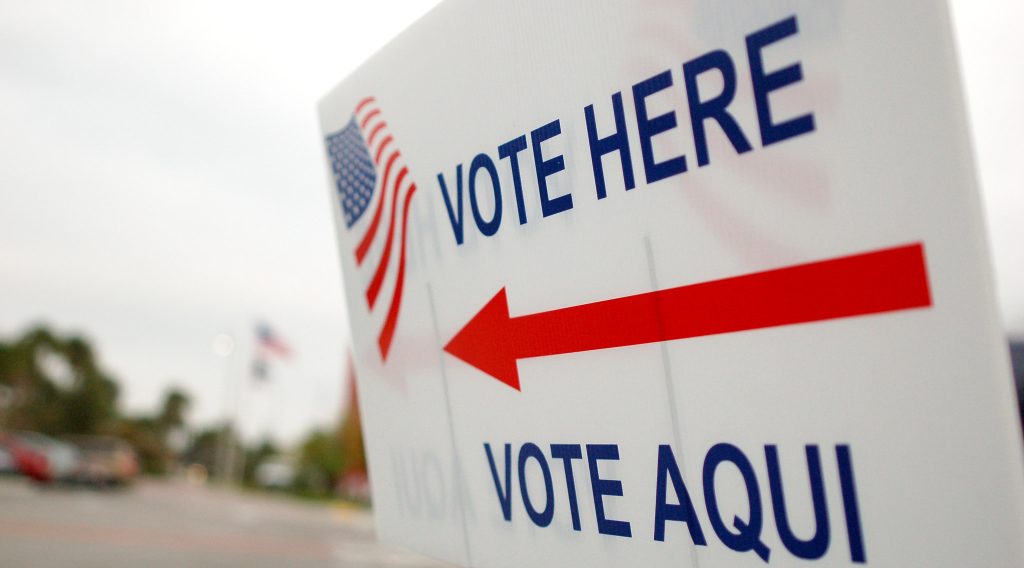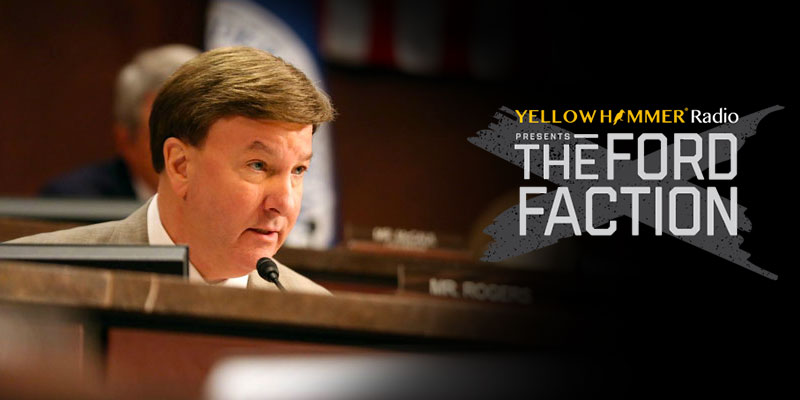Alabama Attorney General Steve Marshall recently responded to the questionnaire prepared by the Alabama Policy Institute and Yellowhammer News. His answers are below.
ACTING PHILOSOPHY
Interpreting the Law
Question: Attorneys general are in the business of interpreting and enforcing the law. If elected, would you see your role as Attorney General (AG) as that of an activist, with freedom to interpret the law to new situations, events, and presidential administrations, or as that of a constructionist, interpreting the law strictly through the lens of original intent?
Marshall: As Attorney General, I am primarily responsible for enforcing and defending the laws of this state and the Constitution. Through the formal opinions process, I also have a role in interpreting Alabama’s laws. I take seriously my duty to enforce and interpret the law as it is written, looking to the plain meaning of the text and not my own opinion of what is the best or right result. When the law is not clear, I do not believe that trying to discern legislative intent is an appropriate means for interpreting law. Instead, I apply Alabama’s well-established principles of statutory construction and look to relevant case law for judicial interpretations of the statute in question.
Enforcing the Law
Are you willing to aggressively defend state statutes and policies, even if you disagree with them?
Yes. As Attorney General, I have aggressively defended our state’s laws regardless of whether I believed that a particular law made for good policy or good politics.
Balancing Roles
How do you plan to balance your role as chief law enforcement officer in the state with your role as chief legal representative of the state?
As Attorney General, I serve the law enforcement community as a partner, resource, and advocate on an array of criminal and public safety matters. My office maintains a criminal trials division, a public corruption unit, and handles all of the state’s criminal appeals and capital litigation. My ongoing Initiative on Violent Crime is an example of how an Attorney General, as the chief law enforcement officer, can take the lead and galvanize federal, state, and local law enforcement around a common goal. Simultaneously, I am the state’s attorney and run what is often referred to as “the people’s law firm.” That includes protecting Alabama’s consumers, defending Alabama’s laws, and pursuing the state’s interests beyond Alabama’s borders. For me, the keys to balancing both of these important roles have been laying out a clear mission and vision, selective hiring, and smart delegation.
MANAGEMENT
Budget and Staff
The AG oversees a staff of more than 160 and a budget of over $10 million. What has prepared you to lead such a large organization and to be a responsible steward of taxpayer dollars?
As Attorney General, I have managed an annual budget of over $20 million dollars—$10 million of that is the amount appropriated to my Office through the General Fund. For 15 years prior to becoming Attorney General, I served as District Attorney of Marshall County. In addition to managing the staff and budget of that office, I also directed the Marshall County Drug Task Force. Both the office and the drug task force completed successful audits every year under my leadership. In any spending decision, I am cognizant of the duty I have to use taxpayer dollars in an efficient and responsible manner that is directly responsive to the demands of public safety and protecting the public’s interest.
Prosecutorial Discretion
Given limited resources, the AG must use discretion in deciding which crimes to prosecute. What is your overall position on the extent of prosecutorial discretion? Should prosecutorial discretion ever be used to avoid prosecuting an alleged corrupt government official? Do you think a prosecutor ever has the right to not prosecute a broad range of accused people/crimes?
As Attorney General, I have the discretion to prioritize the resources of my office in the manner that I believe will best serve public safety and the public’s interests. In doing so, I do not have the discretion to pick and choose which laws my office will enforce. With my approval, prosecutors are able to exercise discretion over when criminal charges are appropriate under the laws of our state based solely upon the facts and the evidence before them. Throughout my twenty-year career as a prosecutor, I have demonstrated that I will always apply the law fairly and equally to those who violate it.
ETHICS
Code of Ethics
Both the current and the preceding AGs proposed comprehensive reforms to Alabama’s ethics laws. The Legislature recently established a Code of Ethics Clarification and Reform Commission “to reform and clarify the Code of Ethics”. The AG will co-chair this Commission with the Ethics Commission Director. Would you recommend amendments or revisions to the ethics code? If so, what are your suggestions in doing so?
Yes. As Attorney General, I have advocated for reforms that would draw clearer lines between legal and illegal activity and ensure that those who violate the public’s trust are held accountable. My comprehensive ethics reform package, written under the direction of my corruption unit, was filed by Senator Marsh during the 2018 legislative session as Senate Bill 343. This legislation will serve as a guiding document for the legislature’s Ethics Review and Clarification Commission, of which I am the co-chair, and I will advocate for it within that body.
In the Office of Attorney General
While the Alabama Attorney General’s office is one of the state’s largest legal offices, it has been a common practice for AGs to outsource lucrative legal work to politically connected law firms. The firms often then contribute large sums to the AG’s campaigns for reelection or higher office. Is this an example of the AG using the powers of the office for personal benefit? If so, how will you make changes to this practice?
As Attorney General, I have become intimately familiar with the manpower and capacity of my office through the work of our divisions and units. Proportionally, Alabama maintains one of the smallest Attorney General Offices in the country. As a result, it can be both necessary and cost effective to utilize outside counsel in extraordinary cases in order to pursue the state’s interests without overburdening or disrupting the daily work of a particular division.
State law sets clear parameters on hiring outside counsel and how their compensation can be structured, but an Attorney General can do even more to ensure fiscal responsibility in these matters. As Attorney General, I have contracted with outside counsel on one occasion—in consumer-protection litigation related to the deceptive marketing of opioids—and capped attorney’s fees nearly 50% lower than what state law allows.
Alabama ethics and campaign finance laws are abundantly clear in regard to quid pro quo arrangements and using one’s office for personal gain. An Attorney General must strictly adhere to these laws, as I have.
Ethics and Economic Development
Alabama House Bill 317 exempts certain economic developers from being required to register as lobbyists and drew heated discussion across the state this past legislative session. Is this exemption, in your opinion, as innocuous as proponents claim or likely to lead to abuse as opponents suggest?
The public has every reason to be skeptical when ethics questions are raised in the policymaking process. When House Bill 317 was introduced, I too had significant concerns with the way that economic development was dealt with in the context of the ethics law. After working with the Department of Commerce for several weeks, the bill was amended to reflect my Office’s preferred approach of narrowly defining who an “economic development professional” is and then excluding those “professionals” from the definition of “lobbyist.” This was in line with the comprehensive ethics reform bill that was proposed by my office and filed as SB343. I found the enacted version of HB317 to be acceptable, particularly given the sunset date that was inserted at my request. This sunset provision will ensure that this issue will be further analyzed, debated, and dealt with by the Ethics Review and Clarification Commission prior to the 2019 legislative session.
INDIVIDUAL RIGHTS
Campus Free Speech
U.S. Attorney General Jeff Sessions recently said there is “too much suppression of free and open speech on college campuses today.” Do you believe this is an issue in Alabama and, if so, how should the AG respond?
I agree with Attorney General Sessions—without question, we have seen significant erosion of free speech on college campuses across the country. We have also seen numerous attempts to stifle the religious expression of students in Alabama’s public K-12 schools via numerous threatening letters and lawsuits from outside interest groups. The Attorney General can play a valuable role in the protection of First Amendment rights both by providing guidance to involved parties on what is protected speech and by assisting in national and state-based cases in which the state has a distinct interest in protecting individual First Amendment rights.
Religious Liberty
Do you think that individuals and small business owners should be forced to participate in activities that violate their religious beliefs in order to comply with anti-discrimination laws?
No. As Attorney General, I have taken a stand for the religious liberties of individuals and private business owners in several notable cases. These cases include: defending a Kentucky t-shirt printer from being compelled to print shirts containing messages that were in conflict with his religious beliefs; defending faith-based pregnancy centers in Maryland and California from being compelled to disseminate pro-abortion materials; and defending a Colorado bakeshop from being compelled to design cakes that support a message in violation of his religious beliefs. The California and Colorado cases are currently pending with the U.S. Supreme Court. In each of these cases, I have maintained that the First Amendment freedom of expression is violated when the government attempts to compel private speech that is in conflict with an individual’s sincerely-held religious beliefs.
FEDERAL ISSUES
Federal Overreach
When Texas Governor Greg Abbott was the Lone Star State’s Attorney General, he made headlines by saying, “I go into the office, I sue the federal government, and I go home.” What role should the AG take in fighting federal government overreach? Would you be willing to file suit—and use state resources—to prevent such overreach?
As Attorney General, I have proudly led and joined cases with fellow conservative Attorneys General designed to limit federal overreach and protect our liberty. Many of our cases deal with federal actions taken during the Obama Administration. For example, I led a case challenging the federal government’s redefinition and dramatic expansion of the Endangered Species Act. The effect of this rule change, made by unelected bureaucrats in Washington, was a very real and substantial threat to private property rights—a foundational freedom. Fortunately, in this case, the Trump Administration agreed to work with us toward a swift resolution. Though lawsuits will continue to be necessary at times, I am optimistic about my ability to work with the Trump Administration to reclaim the sovereignty of the state and expand individual freedom.
Immigration
Many state attorneys general have sued the Trump administration for ending the Deferred Action for Childhood Arrivals program. On May 2, 2018, Alabama joined six other states suing to end the program permanently. In your opinion, how effective is this form of joint action and how do you plan on upholding Alabama immigration law if executive action on the federal level runs contrary?
As Attorney General, I made the decision to join with six other states to ask a federal court to declare the DACA program unconstitutional. We argued that the program is unconstitutional for several reasons: DACA was not approved by Congress, it is in conflict with federal immigration law, it violated the Administrative Procedures Act, and it violated the “Take Care Clause” of the Constitution. This form of joint action is extremely effective—Alabama won a significant victory in a nearly-identical case over the constitutionality of DAPA in 2014. At least three activist federal judges have attempted to prohibit the Trump Administration from closing the DACA program. Our lawsuit argues that the program was never constitutional to begin with and provides a means by which this question can be settled by the U.S. Supreme Court.
Opioid Epidemic
According to the CDC, Alabama is the state highest-prescribed with opioids, with more prescriptions than people. Opioids are the main driver of overdose deaths and, in 2016, 756 Alabamians died from drug overdoses. As AG, how would you address Alabama’s share of this national crisis?
As Attorney General, I have put the full resources of my Office behind tackling the complex and devastating opioid crisis in our state. In addition to co-chairing the Governor’s Overdose and Addiction Council, I have joined with various federal partners within the Trump Administration to chart the best course toward a solution. The work of the Addiction Council has already produced some fruit—we have outlawed the trafficking of dangerous illegal opioids and have established a better system of data collection which is vital in pinpointing the problem in our state. While I have spent a great deal of time focused on the responsibilities of law enforcement in dealing with opioids, I am convinced that we do not have all of the answers. To that end, I have traveled our state promoting greater community education and engagement on this issue. In April and May, I have held “Faith Forums” in Alabama’s 4 major cities to encourage members of the faith community to join the fight and reach out to those struggling with addiction.
RULE OF LAW
Civil Asset Forfeiture
Some states are eliminating provisions that allow police to seize property without securing a criminal conviction. Would you support legislation that reforms the use of civil asset forfeiture by law enforcement and the provision that allows agencies to keep the proceeds of seized property? Why or why not?
As Attorney General, and as a prosecutor for over two decades, I have used and directed the use of civil asset forfeiture where appropriate and find it to be a vital tool for law enforcement that must be preserved. Like U.S. Attorney General Sessions, I believe that the state has a rightful interest in removing the fruits and instrumentalities derived from crime. That is not to say that the system is perfect, however. To that end, I would support efforts to make the forfeiture process more transparent to increase public confidence. Further, though due process does exist under Alabama’s forfeiture laws, I would be willing to establish within my Office a process of review for alleged abuse of civil asset forfeiture.
Prison Reforms
Alabama has received national attention for the state of its prisons and a federal judge recently called inmate care “horrendously inadequate”. How would you address this issue, and do you support the use of private prisons?
As Attorney General, I must decline to offer a personal opinion on a matter that the state is currently litigating.
Gaming
In its 2009 Cornerstone decision, the Alabama Supreme Court held that local laws in Alabama legalizing “bingo” games for the benefit of churches and other charities authorized only the old fashioned, or “traditional” game commonly known by that name. The Court repeated itself over a half dozen times in the seven years after Cornerstone. In light of the Alabama Supreme Court’s decisions on this issue, should casinos—like the ones operating in Macon and Greene Counties—be allowed to operate as they are today? Explain your answer in detail, including whether you consider Alabama Supreme Court decisions on matters of Alabama law to be “the law of the land.”
As Attorney General, I have enforced the law against illegal casinos in Alabama. When I took office, there were casinos operating illegally in five counties. I filed lawsuits to shut them down and, as a result, one of the casinos was immediately closed. The remaining cases are pending in court. As I said at the time those suits were announced, the Alabama Supreme Court has made it abundantly clear that electronic bingo and the use of slot machines are illegal in all Alabama counties. It was incumbent upon me to take action to hold accountable those who defy the laws of our state.
In 2009, the Governor of Alabama appointed a special task force to enforce the gambling laws of Alabama in the absence of any action by the then Attorney General to shut down or prosecute the operation of gambling machines in Macon, Greene and other counties. This action by the Governor succeeded in shutting down casinos in these counties. Should that enforcement action have been taken by the Attorney General instead of the Governor?
An Attorney General abdicates his or her lawful duties by failing to enforce the law. In 2009, the Governor was compelled to take action when the sitting Attorney General refused to enforce Alabama’s gambling laws.
It is also important to note that, though attempted in 2015, the Governor has no authority to prevent or hinder the Attorney General from fully enforcing the law.
The Indian Gaming Regulatory Act allows certain Indian tribes, including the Poarch Creek, to conduct gaming operations on reservation land if such operations are permitted by the law of the state in which those reservations are located. Numerous Alabama Supreme Court decisions have been written arguing that electronic machines of the nature at issue are illegal under Alabama law. Should these machines continue to be permitted on Indian reservations within the State of Alabama? If elected Alabama Attorney General, would you work with the United States Attorney General to make sure that the all gambling laws, including federal law applicable to Indian reservations, are properly enforced?
As Attorney General, it is my responsibility to enforce the laws of our state and to abide by binding decisions of the court. In 2015, the U.S. Court of Appeals for the 11th Circuit ruled that the State of Alabama has no right of action to sue the Poarch Creek Tribe over enforcement of state gambling laws and that the federal government alone has regulatory authority over Indian gaming. To the degree that it is lawful and appropriate, I will work with the National Indian Gaming Commission and U.S. Department of Justice to ensure that all applicable laws on gaming are enforced.




